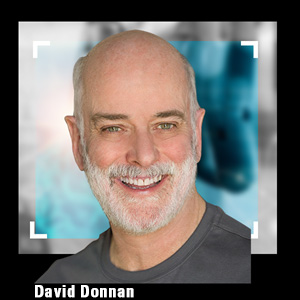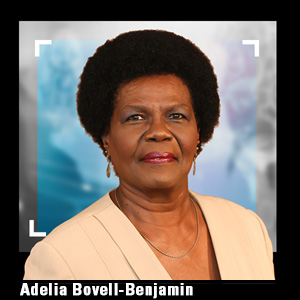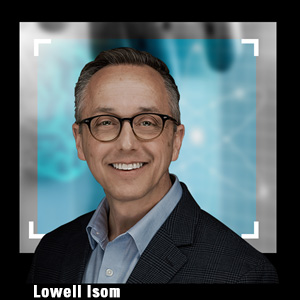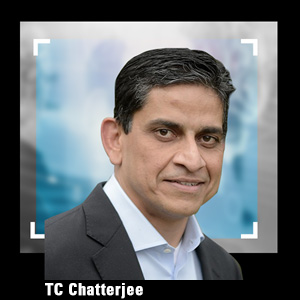Diverse skill sets needed for growing opportunities
To understand where the future of work in the science of food is headed, it’s necessary to first look at how the industry has changed, explained the panelists at an IFT Careers InFocus virtual event session titled “The Future of Work.”
To understand where the future of work in the science of food is headed, it’s necessary to first look at how the industry has changed, explained the panelists at an IFT Careers InFocus virtual event session titled “The Future of Work.” Consumers are driving much of this change. “Everything starts and ends with the consumer,” reinforced TC Chatterjee, CEO at Griffith Foods.
 David Donnan, partner emeritus at Kearney, explained that the top three priorities in buying food are convenience, taste, and price for most consumers. “But what we’ve now seen is a shift from just buying on value to buying on values,” emphasized Donnan. As millennials grew to become the largest generational cohort over the past decade, values like sustainability, health and wellness, and environmental consciousness grew in importance. “Consumers are now buying not just based on what it is but where it came from and how it was made,” continued Donnan. This shift in values is pushing the manufacturers, retailers, and restaurants to alter their menus and products to be clean label, minimally processed, and humanely raised.
David Donnan, partner emeritus at Kearney, explained that the top three priorities in buying food are convenience, taste, and price for most consumers. “But what we’ve now seen is a shift from just buying on value to buying on values,” emphasized Donnan. As millennials grew to become the largest generational cohort over the past decade, values like sustainability, health and wellness, and environmental consciousness grew in importance. “Consumers are now buying not just based on what it is but where it came from and how it was made,” continued Donnan. This shift in values is pushing the manufacturers, retailers, and restaurants to alter their menus and products to be clean label, minimally processed, and humanely raised.
 The landscape of food systems is also changing, said Adelia Bovell-Benjamin, professor of food and nutritional sciences at Tuskegee University. Black women have a higher obesity rate than any other group of women in the United States, Bovell-Benjamin explained. Still, she has started noticing changes in her community—the “Alabama Black Belt.” The “new age consumers,” as Bovell-Benjamin has termed them, have real concerns about health, food safety, and where their food is made.
The landscape of food systems is also changing, said Adelia Bovell-Benjamin, professor of food and nutritional sciences at Tuskegee University. Black women have a higher obesity rate than any other group of women in the United States, Bovell-Benjamin explained. Still, she has started noticing changes in her community—the “Alabama Black Belt.” The “new age consumers,” as Bovell-Benjamin has termed them, have real concerns about health, food safety, and where their food is made.
Besides the impact of consumers, technology is another major force shaping the future of food. “It used to be that there was high-tech and there was food,” said Chatterjee. “That’s not true anymore. The two worlds are colliding and have been colliding at a very rapid pace. That’s impacting the value chain significantly … and therefore will impact the way we work today and the way we will be working moving forward.”
The Well-Rounded Job Seeker
 So, what are companies in the science of food looking for in prospective employees? Simply put, employers are looking for candidates that are well rounded, said Lowell Isom, managing partner for HHI Search, an executive recruiting firm for scientists and engineers. “In the past, there was a pretty clear delineation between the technical talent and those that had the strategic leadership skills,” explained Isom. “Now, somebody that’s coming in that’s running an organization from a leadership standpoint also needs to bring a very specific technical skill set along with him that is still leveraged.”
So, what are companies in the science of food looking for in prospective employees? Simply put, employers are looking for candidates that are well rounded, said Lowell Isom, managing partner for HHI Search, an executive recruiting firm for scientists and engineers. “In the past, there was a pretty clear delineation between the technical talent and those that had the strategic leadership skills,” explained Isom. “Now, somebody that’s coming in that’s running an organization from a leadership standpoint also needs to bring a very specific technical skill set along with him that is still leveraged.”
Chatterjee agrees that job seekers need to bring more than just a specific set of technical skills. “It is more than just technical skills; it is those skills in application,” explained Chatterjee. Just as important is the job seeker's attitude. “Increasingly, what I think food companies are looking for is the ability of individuals to come in and be additive and accretive in what we are looking to do,” said Chatterjee. “Specifically, meeting consumers' needs that are changing dramatically and at a much more rapid pace means that we, as food companies, have to be equipped to meet those needs of our customers—in our case, food manufacturers—and then their customers—the ultimate consumers. That requires an additional level of speed. If that’s the ask, then we are looking for people who enable us to be that much faster without compromising on the quality of what it is we are putting together.”
 Diversity is another aspect that employers look for when making hiring decisions. “We are looking for people, increasingly as a food industry, that bring their values and their whole self to work,” said Chatterjee. Because, as Isom explained, “a diverse workforce is more productive, more innovative, and provides a culturally rich experience for employees.” But, Isom also noted that it isn’t an easy task, and one thing that we may learn coming out of the COVID-19 pandemic is “what organizations really valued diversity and gave it a focused initiative and those that were just really looking to fill seats.”
Diversity is another aspect that employers look for when making hiring decisions. “We are looking for people, increasingly as a food industry, that bring their values and their whole self to work,” said Chatterjee. Because, as Isom explained, “a diverse workforce is more productive, more innovative, and provides a culturally rich experience for employees.” But, Isom also noted that it isn’t an easy task, and one thing that we may learn coming out of the COVID-19 pandemic is “what organizations really valued diversity and gave it a focused initiative and those that were just really looking to fill seats.”
The Flexible, Smaller Startup
The COVID-19 pandemic has shifted what companies are looking for in prospective employees and what job seekers are looking for in potential employers. With workplaces shut down, companies and employees quickly adapted to working remotely for those jobs where it was feasible. Post-pandemic, it is likely that employees will seek out more flexible work environments, explained Isom. Decades ago, “it was always kind of the holy grail to get a position with one of the global, multi-billion-dollar consumer food companies,” Isom continued. “The excitement now is around these smaller, more entrepreneurial-type companies.” But, Isom cautioned, those seeking the latter kinds of opportunities should prepare to shift their thinking because the smaller companies are less likely to offer all the benefits that the larger corporations can provide. “These smaller companies are destination employers,” said Isom. “Everybody wants to work for them, so you, as a candidate, have to be a bit more flexible.”
The shift in values is happening because “people don’t want to see work as a job,” said Isom. “They want to see it as a way to impact their community.” The good news is that food and beverage startup companies need food scientists, said Donnan. “How do I commercialize my great idea—my great-grandma’s recipe? How do I commercialize it to scale so I can sell it to Walmart or Whole Foods or Kroger?” posited Donnan. “This is where many of them [startups] struggle, and they need food science.” Food scientists can help achieve food safety and optimize shelf life under specific limitations, such as using only natural ingredients. Donnan advised food scientists and technologists looking to land one of these jobs that their skillsets have to be like a “T”—a broad set of skills in things like budgeting, marketing, and fundraising, but also deep in the food science, scalability, and commercialization side of things.
Experts Offer Advice
Closing the session, the speakers gave some final words of advice. “As a candidate, you need to be able to position yourself to have more than the competition,” said Isom. “Broaden your skill set. … Build skills outside of your core expertise.”
From an educator’s perspective, Bovell-Benjamin expressed the need to enhance students’ “unique human skills,” which includes strengthening their leadership skills, teaching them how to use feedback to drive performance, and building those creative and innovative skill sets.
Chatterjee shared one of his favorite hashtags—#ShiftHappens, emphasizing that “we have to be prepared to be more agile to deal with shift when it happens because it will. The better we are able to equip ourselves, the better off our chances of success are going to be—as individuals and as an industry.”
“When you take a look at the opportunities in the food industry, they are immense and are going to continue to be immense,” concluded Chatterjee. “When you take a look at 10 billion people in the world by 2050, there’s not enough food to feed the world and, even if there is, it’s not in the right places. That’s a quantity issue that can and should be addressed. The more important issue is the quality issue, which is accessible, affordable, delicious nutrition. That’s going to become even more of a need moving forward in the future. The food science community has a significant role to play and contribution to make in that sphere, and that should be exciting from the standpoint of an opportunity in the future.”
